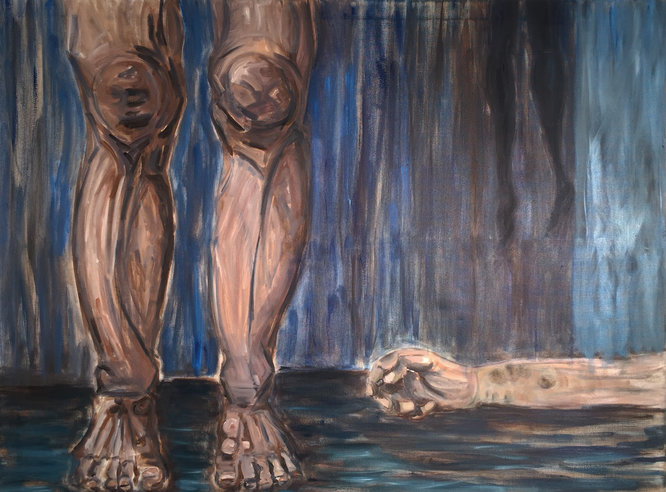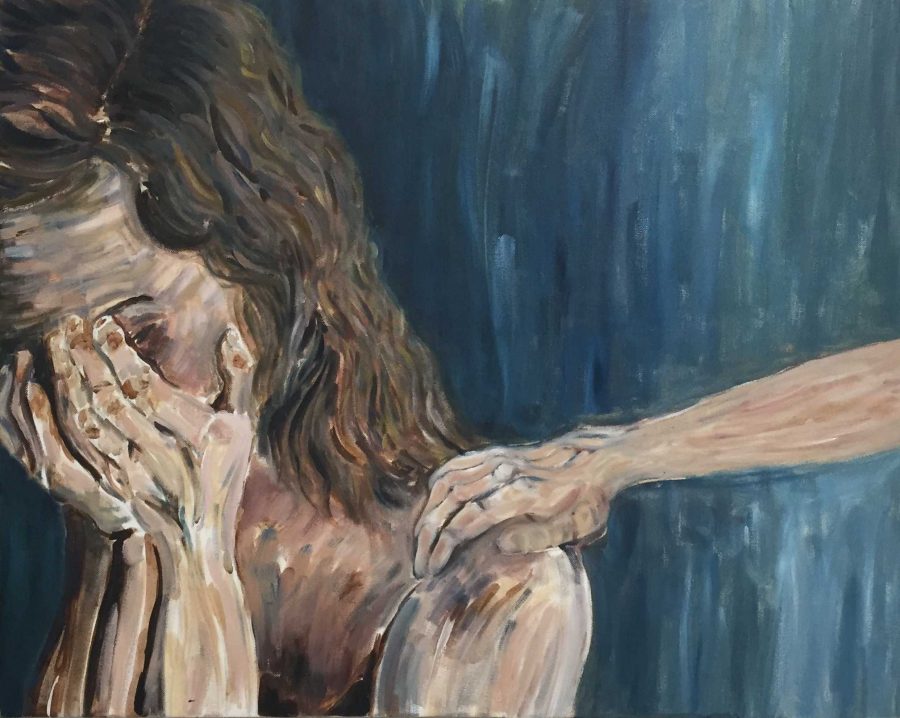For most of her life, Emily Zielinski has had a close relationship with art. But after battling an eating disorder, she realized just how important it was to her.
“[Art] got me away from other things,” said Zielinski, a senior studio arts major. “It has a calming power that gives me a way to express myself.”
Before coming to Pitt, Zielinski studied art therapy for two years at Mercyhurst College but had to take a medical leave due to her battle with anorexia. During this time, she turned to art therapy, which she had decided to pursue as a profession at the end of high school. She learned early on that the process of creating is sometimes more important than the finished product.
“I found personally in my recovery process that art was integral,” she said. “ Art was an exploration for me discovering what influences me and what makes me angry about our society.”
Art has continued to play an important part in Zielinski’s recovery process, such as in “Self Healing,” where she painted a self-portrait and learned how to show self-compassion in the process. Zielinski intends to continue her studies with art therapy after getting her studio arts degree.
In the meantime, Zielinski has received a grant from Pitt to launch her own pilot program with the Caring Place Downtown, a non-profit organization that specializes in helping children and teens to cope with the loss of a loved one.
Zielinski intends to create a program just for children and teens, giving them art supplies to create collages — combined with their personal items — or paintings of their lost loved ones. Afterwards, Zielinski plans to set up a gallery so that the kids can display their work.
“I want the art to bridge the disconnect that sometimes forms between parents and children after trauma and make discussing something that’s hard to express more approachable,” she said.
To look at Zielinski’s work and read what she said about each piece, click the first photo to open up a captioned slide show.



